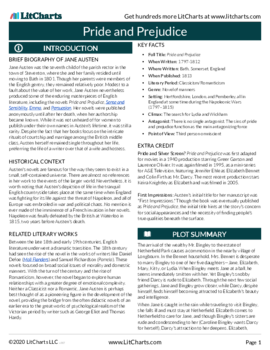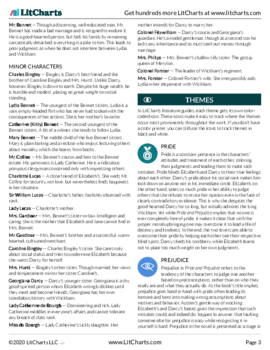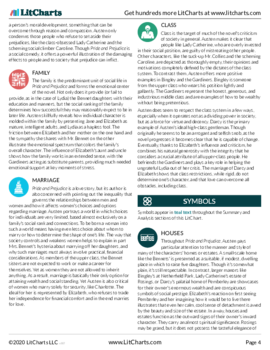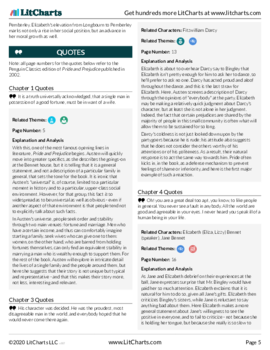- All's Well That Ends Well
- Antony and Cleopatra
- As You Like It
- The Comedy of Errors
- Coriolanus
- Cymbeline
- Hamlet
- Henry IV, Part 1
- Henry IV, Part 2
- Henry V
- Henry VI, Part 1
- Henry VI, Part 2
- Henry VI, Part 3
- Henry VIII
- Julius Caesar
- King John
- King Lear
- Love's Labor's Lost
- A Lover's Complaint
- Macbeth
- Measure for Measure
- The Merchant of Venice
- The Merry Wives of Windsor
- A Midsummer Night's Dream
- Much Ado About Nothing
- Othello
- Pericles
- The Rape of Lucrece
- Richard II
- Richard III
- Romeo and Juliet
- Shakespeare's Sonnets
- The Taming of the Shrew
- The Tempest
- Timon of Athens
- Titus Andronicus
- Troilus and Cressida
- Twelfth Night
- The Two Gentlemen of Verona
- Venus and Adonis
- The Winter's Tale
plus so much more...
-
Lines 1-6
The poem opens by establishing its disarmingly casual tone, pitching somewhere between a narrative and dramatic monologue. Though the whole poem is tightly—and virtuosically—controlled in terms of its form, the language is intentionally down-to-earth and even prosaic (as is Larkin's work more generally).
Like a story or diary entry, the poem starts by setting the scene. The poem is set on Whitsun Saturday in mid-1950s United Kingdom. This isn't an arbitrary detail, but a key part of the poem's setup.
The Monday following Whitsun weekend is a public bank holiday. That's why the speaker encounters so many wedding parties on his train journey from the East of England to London. Of course, the wedding parties themselves aren't introduced until the third stanza, making them a kind of chance encounter (and subtly undermining the idea of the wedding day as something special and unique).
The stanza form used throughout is Larkin's own but is loosely based on the odes of John Keats. This aspect of the poem is analyzed in more detail in the form section of this guide, but here it's worth acknowledging the way that the second line in each stanza is considerably shorter than the rest (two metrical feet as opposed to five), which helps evoke the push-pull rhythm of a train alternating between acceleration and coming to a stop.
Initially, the train carriage is mostly empty. This helps the poem set up a contrast between the quiet isolation of the speaker and the boisterousness of the wedding—and this contrast provides the poem's vantage point, with the speaker able to comment on the weddings in a detached and observant way. And though there is no "sense / Of being in a hurry," the mention of the date and hour does foreshadow one of the poem's main themes—the relentless passing of time. The diacope (close repetition) in line 5—"all windows down, all cushions hot, all sense"—gives the reader a sense of the uniformity of the train carriages, which again anticipates something the poem develops later: the uniformity of the wedding parties.

|
PDF downloads of all 3056 of our lit guides, poetry guides, Shakescleare translations, and literary terms.
PDF downloads of all 1912 LitCharts literature guides, and of every new one we publish.
Learn more
|

|
Explanations for every quote we cover.
Detailed quotes explanations (and citation info) for every important quote on the site.
Learn more
|

|
Instant PDF downloads of 136 literary devices and terms.
Definitions and examples for 136 literary devices and terms. Instant PDF downloads.
Learn more
|

|
Compare and contrast related themes.
Compare and contrast Related Themes across different books.
Learn more
|

|
Teacher Editions for all 1912 titles we cover.
LitCharts Teacher Editions for every title we cover.
Learn more
|

|
PDFs of modern translations of every Shakespeare play and poem.
PDFs of modern translations of every Shakespeare play and poem.
Learn more
|

|
Advanced search across our collection.
Advanced Search. Find themes, quotes, symbols, and characters across our collection.
Learn more
|

|
Line-by-line explanations, plus analysis of poetic devices for lyric poems we cover.
Line-by-line explanations, plus analysis of poetic devices for every lyric poem we cover.
Learn more
|


For every lyric poem we cover.



Literature Guide PDFs
LitCharts PDFs for every book you'll read this year.



Quotes Explanations
For all 42,282 quotes we cover.





Teacher Editions
Time saved for teachers.
For every book we cover.
Common Core-aligned



PDFs of modern translations of every one of Shakespeare's 37 plays, 154 sonnets, and 3 longer poems.


Plus a quick-reference PDF with concise definitions of all 136 terms in one place.





















